Why You Must Transform Your Sales Lizards into Sales Leaders
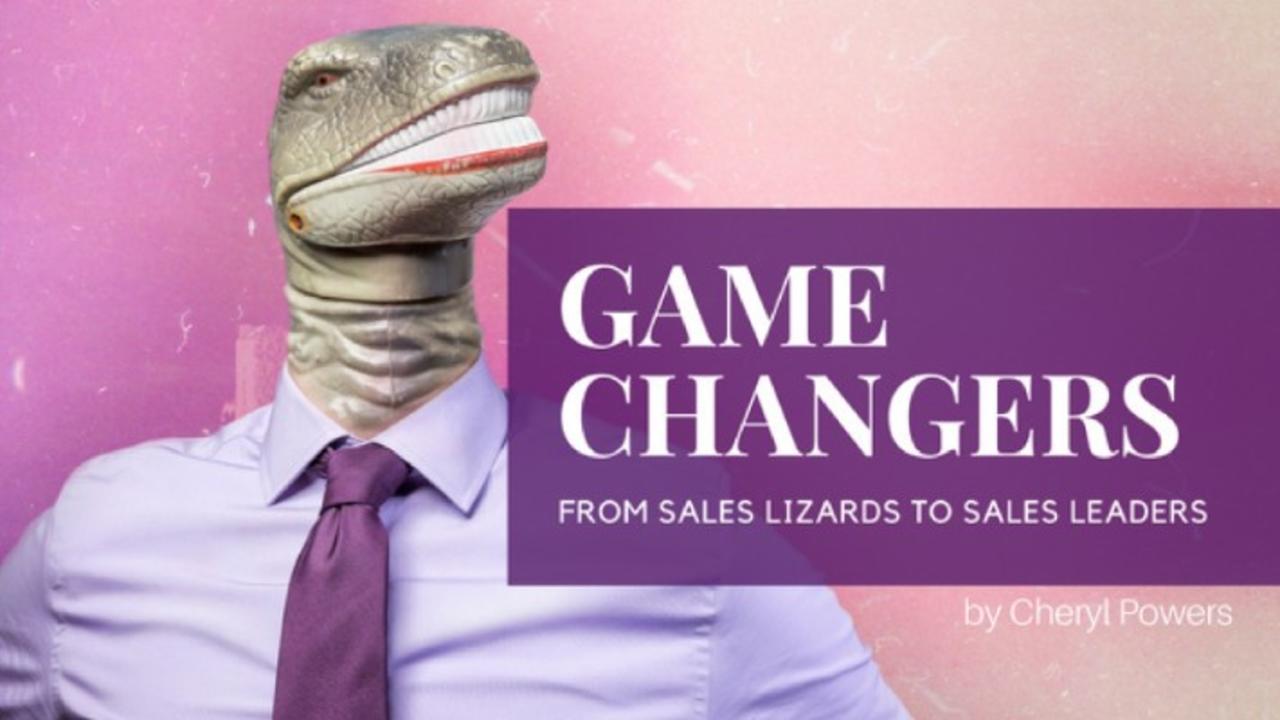
I've said it before and I'll say it here: Sales is the lifeblood of every organization. As a CEO or business leader, you must have a keen eye on revenue. And if you are a company that relies on a sales force, you must be able to depend on your sales leaders to consistently, effectively, and profitably orchestrate new and better business through those sales people.
That's easier said than done when four out of five sales managers are not qualified to do the job they were hired to do. And I'm not sales manager bashing here. If you didn't hire the right manager with the right skills and alignment to to do the job, that's on you. But I'm not CEO or business leader bashing here either. You didn't know there was a better way.
You can't be faulted for falling in love with the idea that the sales managers you hired (like the salespeople you hire) will be able to do the job because it says so on their resume and in their cover letter.
It's not your fault that they told you they could make it...
Still Pardoning the Turkeys on Your Sales Team?
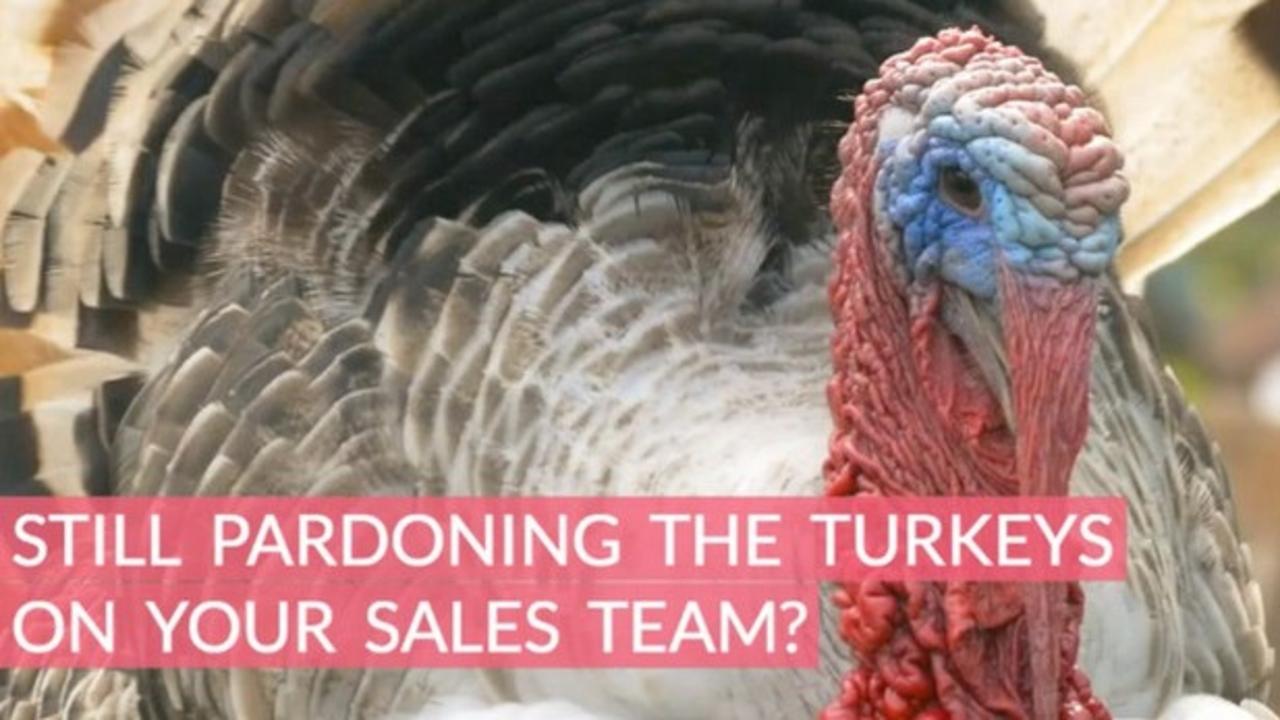
Most of the leaders I know are truly kind people. And they all want to do the right thing. But sometimes, especially when it comes to choosing who stays on your team, it can feel like those two things are in opposition. But I can assure you they are not. In fact, being kind and doing the right thing almost always go hand-in-hand. But only if you exercise discernment.
Too often, I see weak sales leaders - who want to please the wrong people - make the silliest choices when it comes to selecting and retaining sales talent. They keep the people they like, despite the fact that some of them consistently miss their targets, are not the right fit culturally, or push back on leadership initiatives. You know the turkey who hates the new sales collateral, resists using the new CRM, and metaphorically rolls their eyes at any new initiative. Somehow they end up making through every cut while the rest of the team works their tails off to get and stay up to speed.
This end up wrecking the sales c...
Could These Be What's Keeping You From Dominating Your Space?
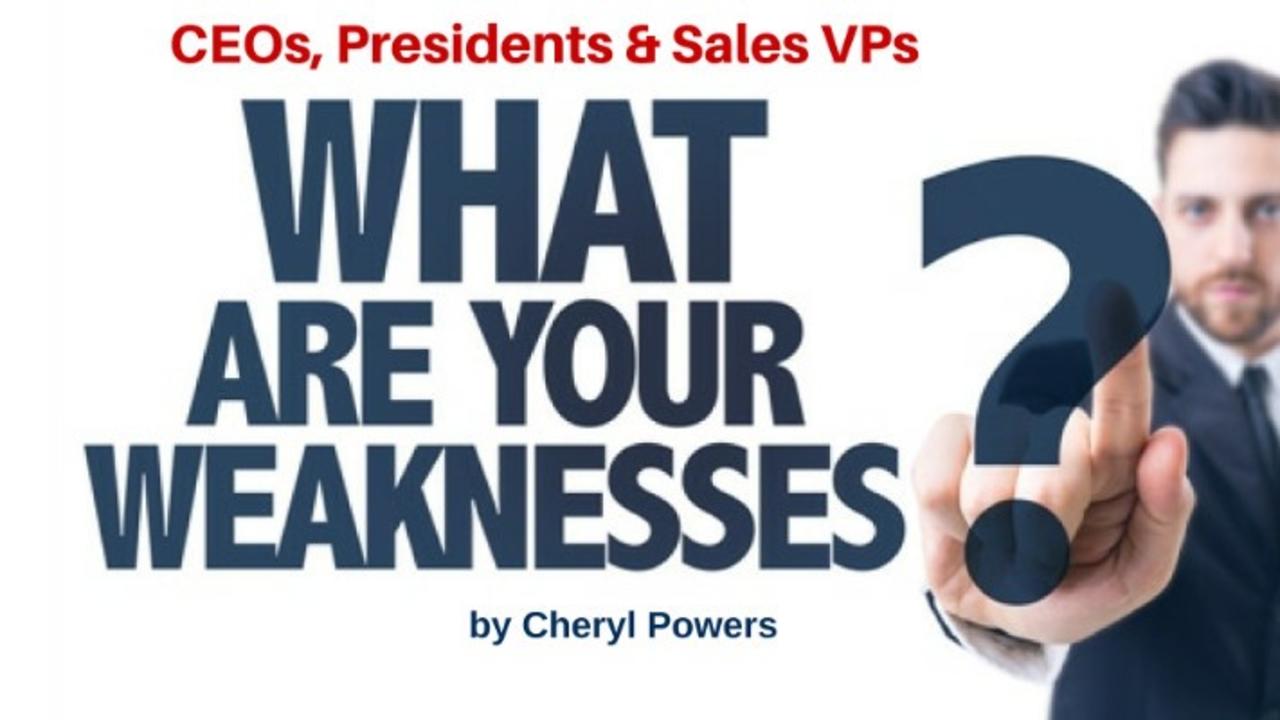
We've all sat through the endless SWOT sessions and rehashed all of the potential threats and weaknesses keeping us from fully leveraging our strengths and opportunities. But what if there's more to it? What if the real threats and weaknesses lie closer to home than we ever realized? What if they have been there all along and we never even suspected? What if they are hiding out in your mind and the minds of your people, waiting until you, or they, need to execute a tactic? The enemy is closer than you think and you should be concerned.
Have you ever had someone on your team with exceptional product knowledge and above average skills miss targets regularly?
Have you observed members of your team struggling to accomplish the same tasks and goals even though they have been trained and coached to do them?
Does your team regularly use price as a way to gain leverage over the competition?
Do members of your team regularly blame the company or the competition or other outside forces for f...
The Common Delusion That Will Wreck Your Business
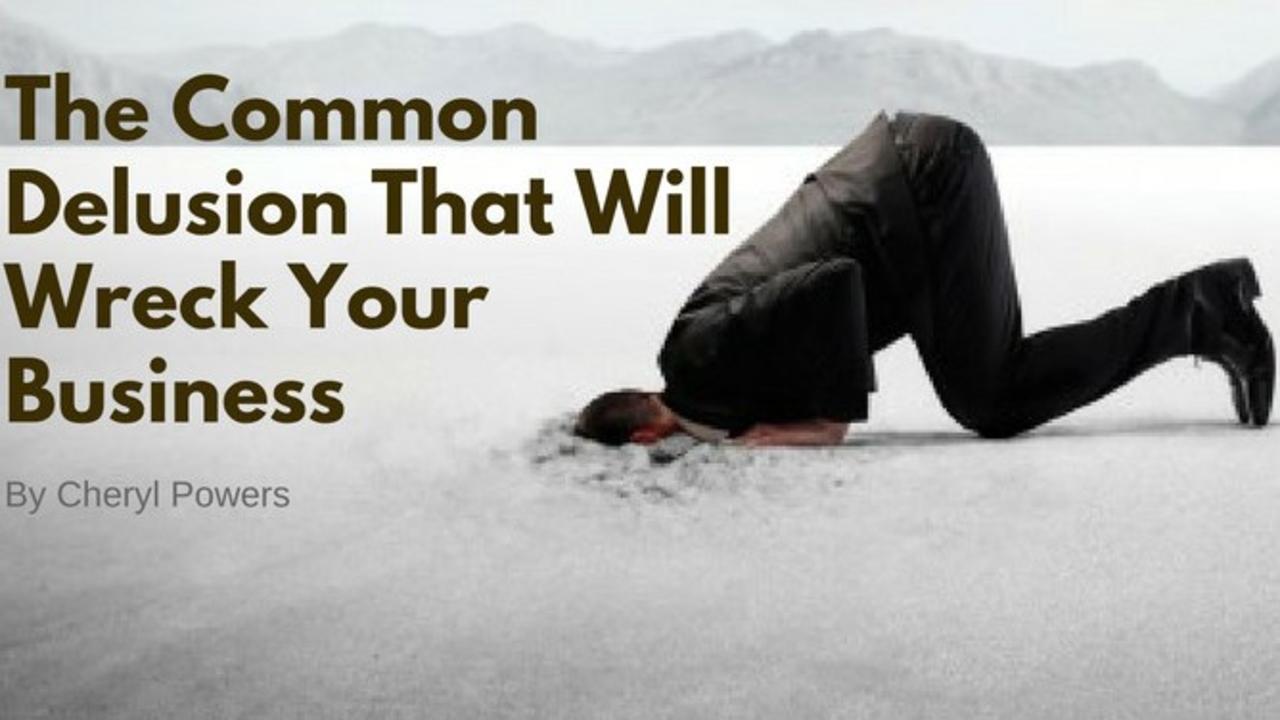
I spend a good deal of time helping CEOs and business owners understand why their salespeople aren't producing as well as the company needs them to produce.
- Some of those salespeople need development.
- Some need coaching.
- Some need stronger leadership.
- Some need to be held accountable.
- Some have been miscast and need new roles.
- And some need to be replaced.
This is all normal and should be expected with any growing sales organization. But what has become all too commonplace and should not be the norm is how long leaders tolerate poor performance. It is simply more costly than most people think it is. Many CEOs and business owners suffer under the delusion that poor performance is simply something they have to live with. They have convinced themselves that they can only have a certain number of "A" players on their team.
Many CEOs and business owners suffer under the delusion that poor performance is simply something they have to live with.
Most of the leaders I work with wa...
A Study In Scarlet: The Death of Your Business Growth
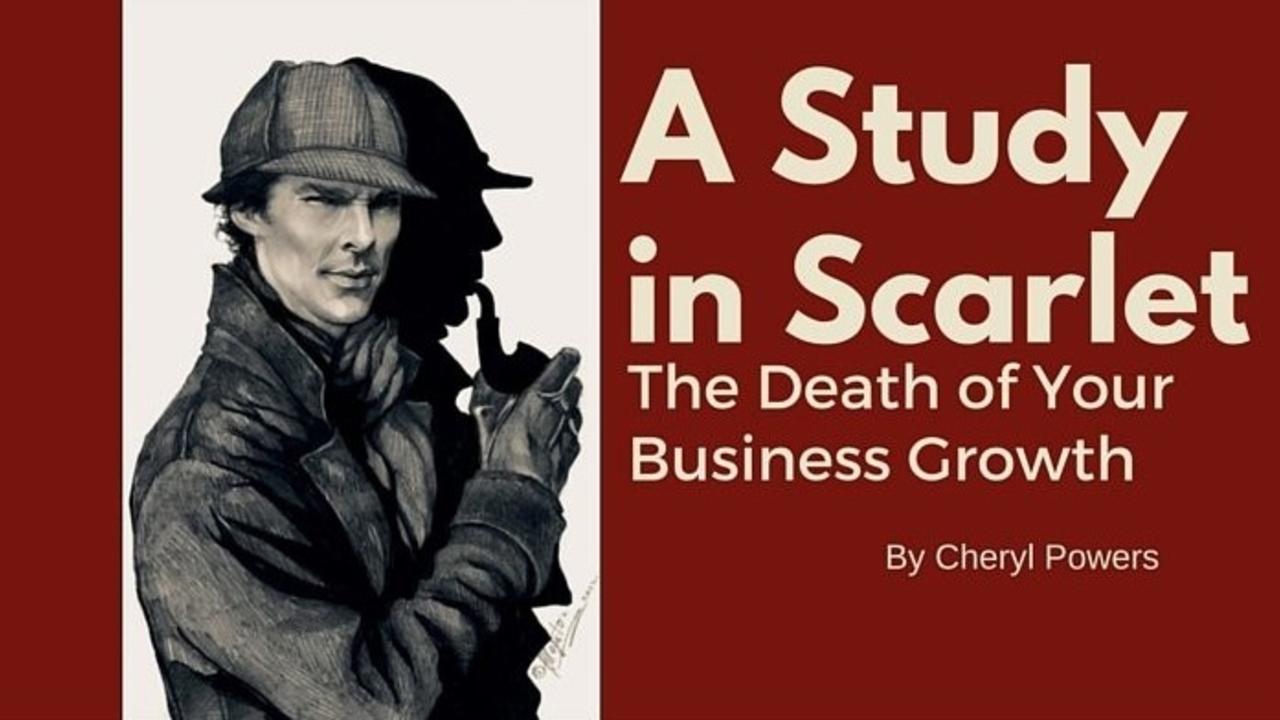
“It’s a study in scarlet.”
That’s what the CEO said when we were reviewing the analysis we performed on a division of his sales organization. He was referring to the red callouts and graphs we used in our report to show the competencies and capabilities of his salespeople and their managers and directors.
Of course, there were some stunningly capable producers on his team, too. But he was right; there was a fair share of red in our analysis. He knew there would be. That’s why he'd hired us to do it in the first place.
He knew he had problems. He saw who wasn’t performing consistently. He heard the reasons for the lack of performance at every quarterly leadership meeting: pricing, competition, production issues. What he didn’t know before that moment in his office was if any of those things were actually causing his revenue growth issues, or if they were scapegoats for the real causes.
He walked to the window and took a long look out over the downtown cityscape. We were nearly finish...
What's Contaminating Your Sales Hiring Filter?
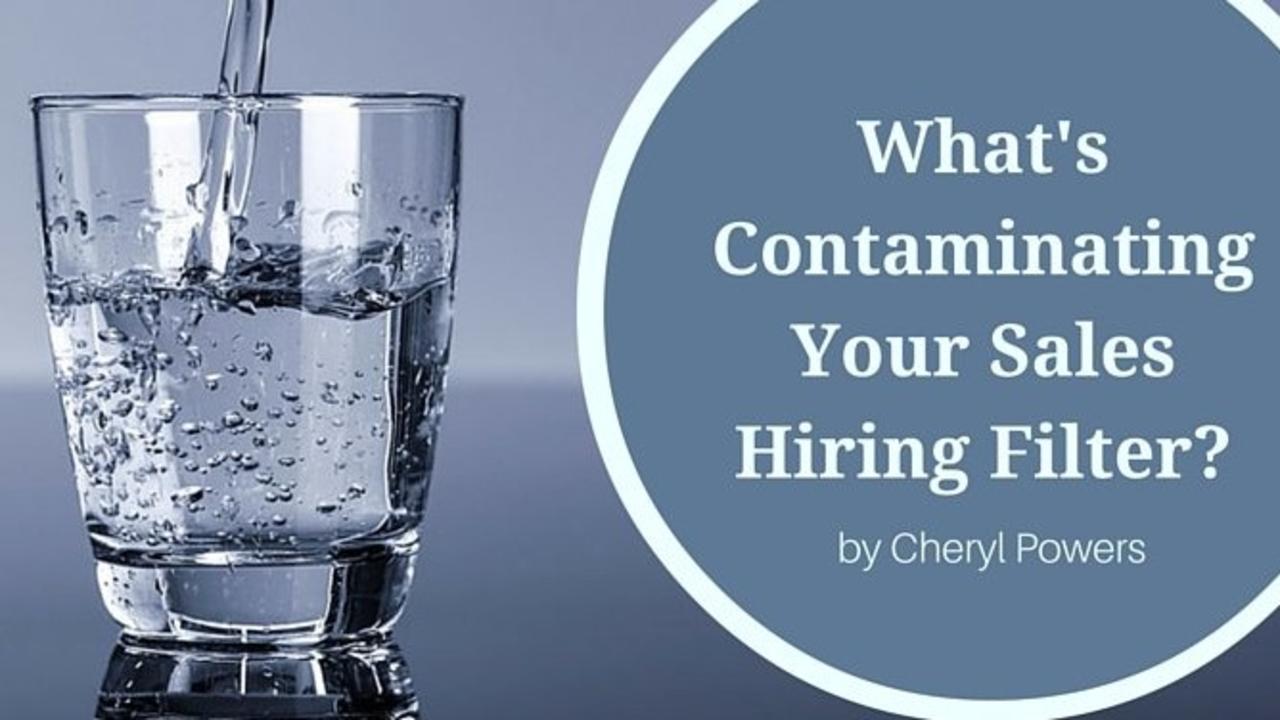
A CEO who was attending one of our Leadership Events came up to me at a break to ask a question. We got to talking and I reached for my water glass. He asked me if I knew what was in the water I was drinking. I asked him what he meant and he proceeded to tell me about how he and his wife had spent the last 30 days researching water filters for their new home. He told me how each one filtered out some of the bad stuff and that what surprised him most was that some filters actually added different bad stuff from the bad stuff they were ostensibly filtering out of the water. Yikes! They finally settled on one they were comfortable with and now he was on a mission to make sure he always had good water to drink. He had my attention. I set my water aside and asked him for the names of the highest quality bottled waters and made a mental note to request them for future events.
Then I asked him if he knew what the quality of his sales hiring filtering system was and if he was certain that it ...
How Understanding Watermelons Can Help You Select Better Salespeople

Recently I visited an old friend and business colleague who taught me the right way to do something I've been doing wrong for a very long time: selecting the sweetest and perfectly ripe watermelon. I love watermelon, especially in the summer. And I often come away from the market with what appears to be the perfect watermelon, only to be disappointed by its mushy texture and its lackluster sweetness.
When you buy as many watermelons as I do, this becomes a real problem because it takes work to select them, carry them home, prepare them, and store them. Don't get me wrong. When I get a great watermelon, it's worth all the work. But when I don't, which had been more often than I care to admit, it's a real pain. So I was happy to get a lesson in the proper selection of this delectable fruit, which is a staple in my refrigerator.
I was also pleased to know I was doing a few things correctly, although I am ashamed to admit that I had no idea why I was doing some of them.
Many of the cli...
There Is Nothing More Deceptive Than An Obvious Fact
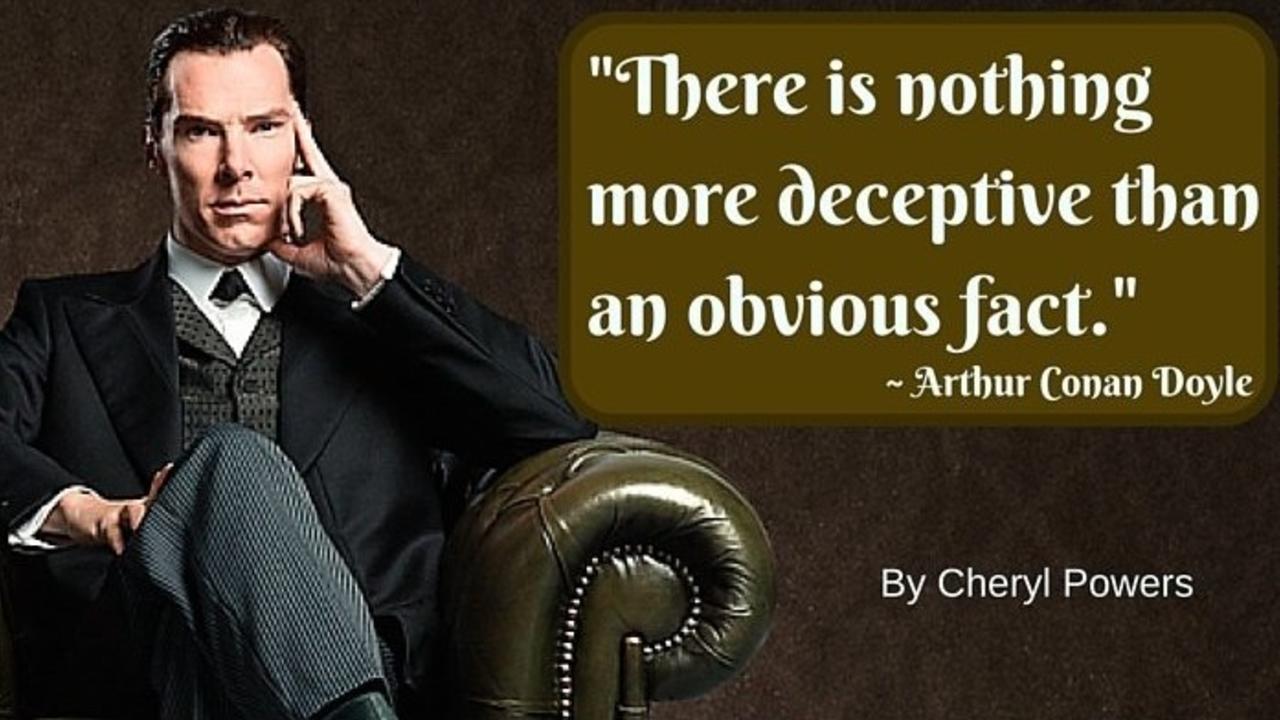
Facts, while indisputable, merely describe the state of something. They point to things which are real, which exist but which don't necessarily explain why or how they got that way. And which, if viewed from another vantage point, may even seem to prove something else entirely.
Sherlock Holmes knows this well. Holmes out-sleuthed the police detectives time after time. He was especially fond of showing Detective Lestrade, who always seemed confused by the facts of a case, the errors in his thinking. Lestrade was notorious for drawing incorrect conclusions, making disastrous assumptions, and taking circumstantial evidence at face value -- all of which left him unable to solve crimes. Until Sherlock arrived on the scene, that is.
"My name is Sherlock Holmes. It is my business to know what other people don't know."
Sherlock has a penchant for solving problems. His secret weapon is uncovering the truth. He has an uncanny gift to see tiny details no one else sees. He unearths data the oth...
What You Don't Know About Your Sales Hires Is Putting Revenue At Risk

Hiring the right salespeople is crucial to developing an effective and dynamic sales force. Developing an effective sales force is the most important job a leader has because your sales force is the vehicle through which you serve the world. No sales, no company. No company, no need for employees. Poor sales, poor company. Poor companies tend to have poor service, which also leads to no customers. You get where I'm going here.
There is an ideal candidate profile for every sales role and every sales leadership role in your company. For each role, there is a right mix of skills and sales DNA that, if your sales hire possess it, will make them likely to be an exceptional producer.
But there's a caveat here. And it's a big one. There are also certain combinations of weaknesses that will prevent even the most skilled salespeople from performing. That's not good news. And, even worse than that, those weaknesses are not obvious to either the salesperson or to management. That doesn't mean t...
Still Using the Magic 8 Ball to Make Your Hiring Decisions?

It's a fact that 90% of hiring decisions are made from the interview. That seems reasonable until you factor in that traditional interviewing is only 14% accurate when hiring for sales.
Salespeople are different from every other role in your business so if you use the same interviewing methodologies you do to hire every other function in your company you are going to get it wrong.
And according to the data, you will get it wrong 84% of the time. With those kinds of odds you may as well ask the magic eight ball who to hire.
Of course you'd never really do that but let's face it, if you don't have a scientifically accurate and predictive way to select sales winners for your company, then you are doing it. Here's how to know if what you are doing is not working well enough:
- Your salespeople frequently miss their targets
- Your sales managers are still selling to "fill in the gaps" (selling is not managing)
- You don't have enough "A" players
- Your recruiting process brings in too many o ...
